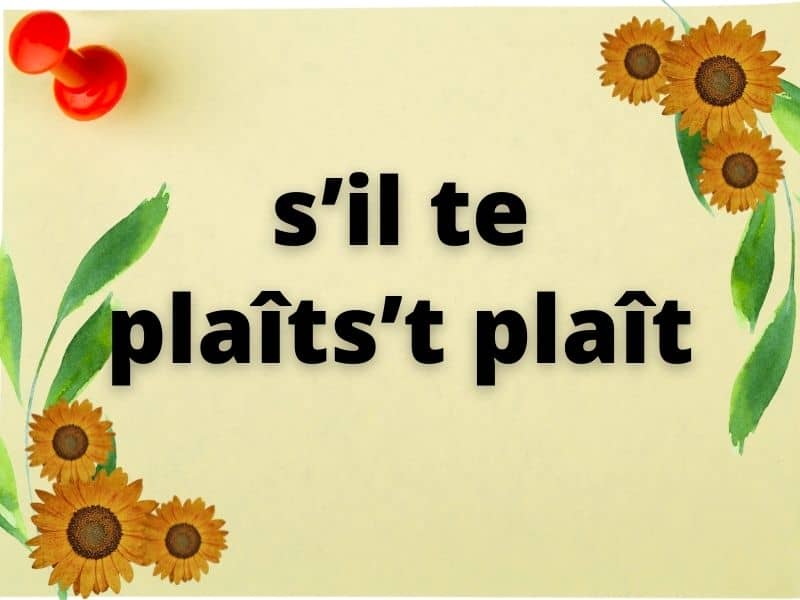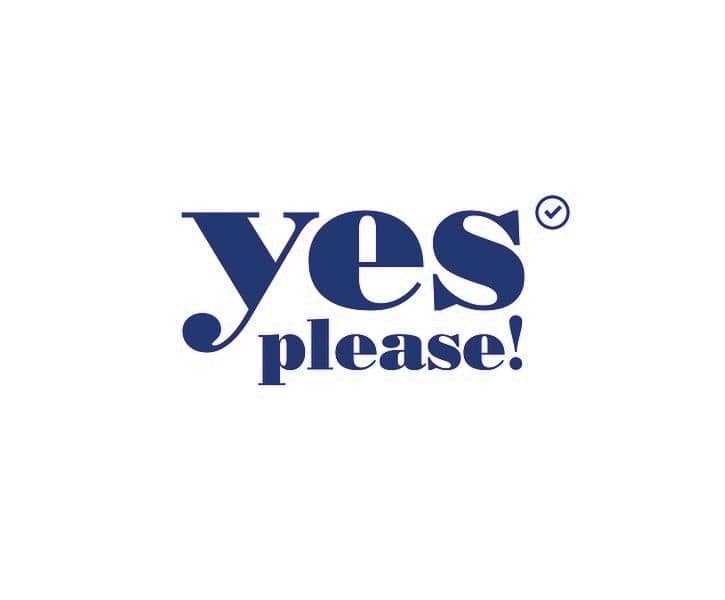The French for “Please” is easily among the first you learn when studying the language. To say “please” in what’s considered as the language of love, you say S’il vous plaît. There is nothing wrong with this, and it’s applicable in a wide range of situations as well.
However, using s’il vous plaît all the time can come off as stiff and stuffy. The wrong translation of “please,” which has different connotations in English, can also cause confusion.
That is why we compiled the different ways to say “please” in French as well as the variations of the word, along with some examples.
Things you'll find in this article
- Please In French : Ways On How To Say It
- 1. When to use the basic form of Please in French
- 2. How to say Please in French to a friend or child in French
- 3. When you want to say “Please, you first!” in French
- 4. How to say “Yes, please!” in French
- 5. When you want to say “As you please” in French
- 6. How to say “Please note/please find attached” in French
- 7. When you want to say “Oh, please!” in French
Please In French : Ways On How To Say It

1. When to use the basic form of Please in French

S’il vous plaît
The literal meaning of s’il vous plaît is “if it gives you pleasure” or “if it pleases you”.
The context in which you use this form of please in French is when you’re asking something of someone — either for them to give you something or to do something for you.
When speaking to strangers, formal speech is used. There are two different ways to say “you” in French. The formal version is the vous form.
When speaking to people you don’t know, especially adults or people older than you, you should use vous. Vous is also the plural form of “you” in French, so you’d use it when addressing a group of people of any age.
If you’re using the formal vous pronoun singularly, you’ll frequently refer to someone as “monsieur” or “madame.”
2. How to say Please in French to a friend or child in French
s’il te plaîts’t plaît

Slightly modify the phrase to express your thanks to a friend or a child in French, so it becomes the informal/familiar s’il te plaise.
The phrase “s’te play” meanwhile, is used when speaking quickly. S’il te plaît is frequently reduced to two rather than three syllables among native French speakers. Use this style of thank you to appear more approachable.
Additionally, yse je t’en prie when the situation is more tense, since Je t’en prie means “I beg of you.” It should only be used in serious situations. In contrast, among friends, the tu form of address is occasionally employed in jest.
3. When you want to say “Please, you first!” in French
Je vous en prie!
Je t’en prie! Allez-y!Vas-y!
We say “please” in English to invite someone to start eating or to go through a door first.In French, meanwhile, you can say je vous en prie or je t’en prie (if you’re talking to someone young or familiar).
Allez-y or vas-y! on the other hand, is a variation of “please, go ahead!” that is quite common. This is a more direct approach that is intended to be motivating.
Want to learn French for free? Rocket Languages helps you to learn French faster and more effectively.
[su_button url=”https://www.rocketlanguages.com/french/premium?type=freetrial&aff=crogador&tid=jtf” target=”blank” background=”#FF6088″ size=”5″]STUDY FRENCH FOR FREE[/su_button]
4. How to say “Yes, please!” in French
Oui, merci!
Oui, avec plaisir!

It’s preferable to say oui, merci! when someone offers you something, such as a cup of coffee rather than oui, s’il vous plaît — though neither is incorrect.
“Yes, thank you!” is the literal translation of oui, merci! while the literal meaning of avec desirir is “with pleasure. “
The distinction is subtle. S’il vous plaît in this case has a more implorative connotation, and you use any of these variations of “please” when you want to ask someone for something.
5. When you want to say “As you please” in French
Ce que vous voulez
ce que tu veux
Comme vous voulez/comme tu veux
These are what you say in French if you want to convey “as you please,” which can also mean “do it however you please,” or “however you want”. In that case, you may also say Faites comme vous voulez ou Fais comme tu veux.
6. How to say “Please note/please find attached” in French
Veuillez…
This is a formal word, but it’s how you write “Please” in an email when you want to say something like “please find attached.”
Note: veuillez is the vous imperative form of “vouloir.” So it means “Want!” as if it were a command. (The tu form is never used.)
For example, if you want to say “please find attached my cheque” in French, it is veuillez trouver ci-joint un chèque.
7. When you want to say “Oh, please!” in French
Oh, c’est bon! Non, mais arrête! Ça suffit!
There are instances where all you want is for someone to stop talking nonsense. There is already so much nonsense in the world and you feel like you’ve had enough.
You say c’est bon! in this case. To say “please” in such a way that it conveys “enough” you may also say ça suffit! (that’s enough!) or, arrête! (Stop!)
To emphasize the word arrête, over pronounce the final syllable, like when you say Mais arrête-euh!
Want to learn more French phrases? Check out our language guides below:
Get fluent fast now. Upgrade your French language skills with our free classes online today.
[su_button url=”https://www.rocketlanguages.com/french/premium?type=freetrial&aff=crogador&tid=jtf” target=”blank” background=”#000000″ color=”#ffffff” size=”5″ center=”yes”]SIGN UP FOR FREE[/su_button]
- How To Order In Restaurants In French
- Ways To Say Wow In French
- 10+ Ways To Say No Problem In French
- Yes In French: How To Say It In 20 Different Ways

Hi, I’m Christine – a full-time traveler and career woman. Although I’m from the Philippines, my location independent career took me to over 40 countries and lived in 4 continents in the last 10 years, including France. A self-proclaimed Francophile, I love everything France.
